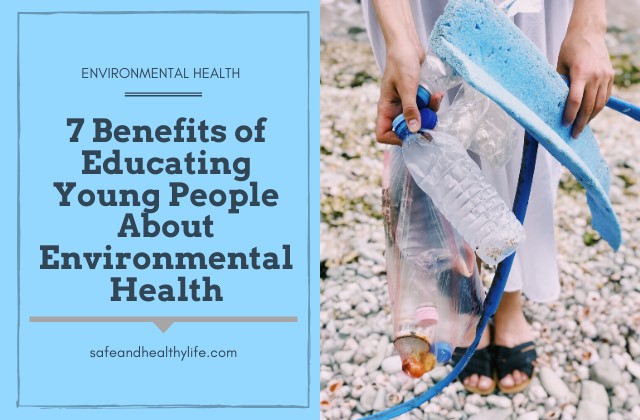
The preservation of ecosystems such as lakes, parks, and forests is the responsibility of the entire society, including children.
Without educating young people about the benefits of preserving the environment, forests will be bulldozed, and what will remain is a land full of building complexes or shopping malls.
That is why many parents and concerned human rights activists continually advocate for the inclusion of environmental health courses into the school curriculum.
Here are the benefits of educating young people about the importance of a sustainable healthy environment.
1. Respect for Nature
Garbage piles in some neighborhoods, especially remote locales, are eyesores that lower property values and endanger the health of locals.
Interestingly, children seem not to care because adults have not instilled a healthy respect for nature in them.
Hence, to avoid such situations in the future, teachers need to start teaching children about the importance of respecting the environment and being kind to ecosystems.
According to St. Francis of Assisi, if humans don’t respect animals, there is a likelihood that most people won’t have compassion and pity for fellow humans.
Therefore, teaching children ways on how to nurture the surroundings should help them understand how their behavior affects the people around them.
2. Sustainability
Currently, there are numerous environmental health projects that are focused on conserving the environment for future generations.
If children are not thought about the value of conserving the environment and respecting nature in general, the earth’s natural resources may soon be depleted.
A sustainable form of consumption for these limited resources is encouraging young people to participate in beneficial environmental health projects actively.
After undergoing extensive environmental review, it has been proven that the Cadiz Water Project doesn’t cause any significant effects on the environment.
In the near future, the Santa Margarita Water District (SMWD) will get a reliable supply of water from this project. Children should be encouraged to contribute to such beneficial environmental projects.
3. Improves Critical Thinking Skills
Ecological education provides young people with the skills to think critically about the consequences of their actions.
This is a crucial skill for people who have an interest in environmental conservation and other aspects of life. Children may not understand the long-term effects of their actions if schools don’t teach them how to think critically about environmental health.
Many schools across the globe have taken the initiative of teaching young people both theoretically and practically on the effects of human activities on the environment.
Environmental health education encourages young people to spend valuable time outside engaging in activities such as biking, fishing, surfing, and hiking, rather than playing computer games all day indoors.
4. Instills Safety and Responsibility
Incorporating an environmental health class in a school curriculum instructs students on how to be safe and responsible.
In other words, it teaches children and young adults how to avoid taking dangerous risks and be mindful of their surroundings.
That is why most people who have undergone wilderness safety training or acquired a few skills about hunting have mastered safety skills and know-how to live responsibly.
5. Offers A Fun Break from The Classroom Routine
Spending too much time in class can sometimes be boring for learners. A few hours break to learn something about environmental health may be helpful to children.
So, learning about the environment and engaging outdoor activities is one way of making the school curriculum more fun and exciting.
In addition, this is a thought-provoking opportunity for teachers to incorporate demanding subjects such as biology and chemistry into the curriculum. Imagine learning engineering, mathematics, and science in a meadow or forest!
Furthermore, the lack of civic engagement among young people in today’s digital era is appalling. Teaching these young people on how to actively participate in city or county level organizations can change their overall attitude about appreciating where they live.
| Read also: Fun and Healthy Outdoor Activities to Try This Weekend |
6. Boosts Awareness
Studying subjects related to the environment or ecosystems encourages awareness of global sustainability challenges.
Some of the major areas of focus include learning about the species of various animals and plants and teaching children about the key components that support life on earth.
Helping children understand what the world is currently facing will eventually help enlighten them to maintain a sustainable environment.
7. Helps Shape the Future Careers of Students
Science and math teachers are required to meet certain state requirements in their school districts.
Ecological or environmental health education courses offer these teachers an opportunity to meet these requirements. This also prepares students for lucrative future careers.
Pursuing an environmental science degree or undergoing extensive training in ecology can prepare a student for an exciting career.
Environmental education can form the basis of a sustainable future. Ecological education enhances learning processes in school districts.
If your kid’s school board hasn’t included environmental health education in its curriculum, consider using these benefits as your talking points in your next PTA meeting. Help the school board understand the value of incorporating ecological education in their various courses.
About The Author:
Steve Barker is an independent blogger and content writer. He is a pharmacist and nutritionist by profession. He has a vast knowledge of the healthcare field. He loves to share his thoughts with his informative pieces and connect with the audiences.




